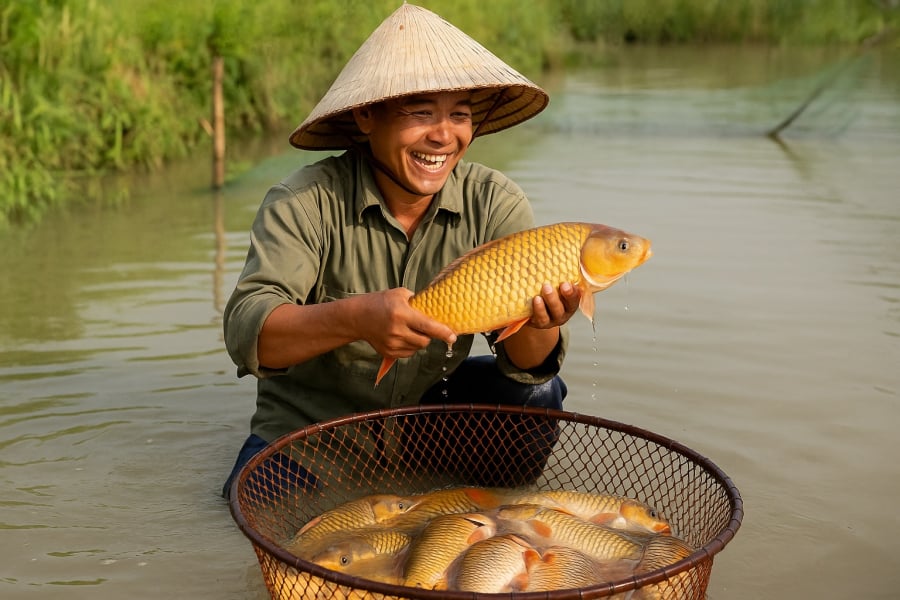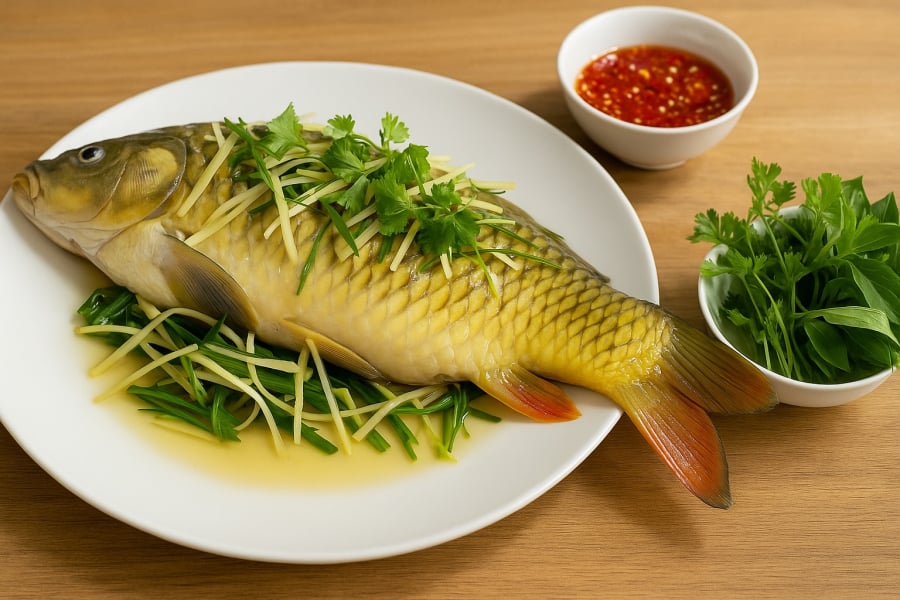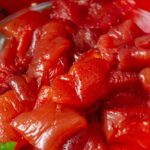Carp – A Village Pond’s Golden Treasure
While salmon is often hailed as the queen of nutrition in the seafood world, a humble village pond fish, carp, boasts a nutritional profile that rivals, and even surpasses, that of salmon. According to data from the United States Department of Agriculture (USDA), 100g of carp meat contains approximately 22.9g of protein, which is higher than the amount found in salmon (around 20g/100g).
This makes carp an ideal choice for those seeking to incorporate a natural source of protein into their daily diet without breaking the bank. Carp is also a good source of essential nutrients such as potassium, phosphorus, iron, calcium, and vitamins B12, A, and D.

Renal Tonifying and Qi-Boosting Properties in Traditional Medicine
Carp is not only a nutritional powerhouse in modern times but also a precious tonic in Eastern traditional medicine. According to herbalist Nguyen Van Tu, carp has a sweet taste, a neutral nature, is non-toxic, and benefits the spleen, lungs, and kidneys. In folk medicine, carp is often cooked with ginger, lotus seeds, and adzuki beans to nourish women in postpartum recovery, as well as individuals suffering from asthenia or edema.
“Carp has excellent renal-tonifying, diuretic, lactagogue, heat-clearing, and detoxifying effects,” shared the herbalist. “Crispy carp, in particular, is not only delicious but also easier for the body to digest and absorb.”
Additionally, modern nutrition experts acknowledge that carp is rich in omega-3 fatty acids, which are beneficial for cardiovascular health, help reduce bad cholesterol, support brain function, and prevent infections.
The Crispy Carp Farming Model – A Multi-Billion Dong Enterprise
Beyond being a culinary delight, carp has become a golden opportunity for many farmers who have adopted the crispy carp farming model. This unique variety of carp is raised using a special technology – they are fed silk worm pupae instead of regular feed, resulting in firmer, crispier, and more flavorful meat compared to conventional carp.
In provinces such as Dong Thap, An Giang, Bac Ninh, Hai Duong, and Lao Cai, numerous households have successfully implemented this model. A notable example is Mr. Le Van Dung from Dong Thap, who supplies nearly 200 tons of crispy carp to the market annually, with prices ranging from 100,000 to 200,000 VND/kg. His annual revenue reaches 10 to 15 billion VND, leaving a profit of several billion VND after expenses.
“I farm crispy carp on about 5 hectares of land, and thanks to clean water and a closed-loop system, the fish grow well and are less prone to diseases. The market demand is stable, and many traders place orders even a month before the harvest,” shared Mr. Dung.

Dual Value: Clean Food and Sustainable Livelihood
The development of carp farming models not only brings economic benefits but also raises awareness about food safety. Consumers are increasingly concerned about the origin, farming practices, and nutritional value of their food. Crispy carp, raised without antibiotics and fed a natural diet, has thus become a preferred choice.
Dr. Tran Anh Tuan, an aquaculture expert from Ho Chi Minh City University of Agriculture and Forestry, stated, “Carp is a highly adaptable species that requires minimal care but offers significant economic benefits when the right techniques are applied. Developing crispy carp farming not only produces clean food but also helps rural areas achieve sustainable poverty alleviation.”
From Village Ponds to Modern Dining Tables
In an era where consumers prioritize quality over glamour, carp – once considered a rustic, rural fish – is proving that true value lies in sustainability, naturalness, and cultural heritage. Bring carp back to your dining table, whether as a delicious carp and bamboo shoot soup, braised carp in soy sauce, or simply steamed carp with ginger, and savor the subtle flavors and heartwarming sentiments of this humble yet extraordinary dish.
The Ultimate Guide to Sashimi: Why This $1 Dish is a Must-Try in Haiphong and How to Enjoy it Like a Local.
“This unique delicacy has become a must-try specialty for those with an adventurous palate and a love for raw food. While it is a well-known delicacy, the challenge lies in presenting it to a wider audience and enticing them to take a bite. The dish has gained popularity in Hanoi, with numerous venues offering this tasty treat with a twist.”
“The ‘Robinson Crusoe’ Island Escape in Phu Yen: A Tranquil Haven for Sunset Camping and Soulful Solace”
Nestled in the pristine lands of Phu Yen, this hidden gem of a destination captivates travelers with its awe-inspiring natural landscapes. Offering a serene escape from the hustle and bustle of everyday life, it is the perfect spot for those seeking a tranquil journey of rejuvenation and relaxation.



































